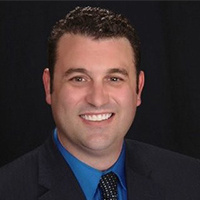 Alta Divorce Lawyers, California
Alta Divorce Lawyers, California
Sponsored Law Firm
-
 x
x

Click For More Info:
-
Law Office of Kevin M. Cecil
641 Fulton Ave Suite 200 Sacramento, CA 95825» view mapDivorce & Family Law A Law Firm You Can Trust
Let the Law Office of Kevin M. Cecil handle all of your family legal matters today!
800-940-7280
Includes: Alimony & Spousal Support
Sponsored Lawyers
1-3 of 3 matches
Divorce & Family Law, Family Law, Divorce, Child Custody, Child Support
Lauren Pruett is a Partner and shareholder of Gale, Angelo, Johnson & Patrick P.C.. Lauren oversees our Family Law Department. She focuses exclusively on family law issues including: divorce, custody, spousal support, child support, domestic violence, guardianships, adoptions, grandparent visitation. Lauren dedicated her focus to family law from the start of her legal studies, taking courses dedicated to the field such as family law, community property, family law trial skills and juvenile law. Additionally, she clerked for the Honorable Thadd Blizzard for one year at the William R. Ridgeway Family Relations Courthouse and worked as a certified law student for a local family law firm while pursuing her legal studies. Lauren graduated cum laude from California State University Sacramento, receiving her bachelor’s degree in Psychology. Lauren went on to receive her Juris Doctorate from the University of Pacific McGeorge School of Law obtaining honors in her clerkship positions and her practical and persuasive legal writing courses. Notable facts: Lauren is a dog mom, spin fanatic, wine lover and avid certified scuba diver. In her spare time she enjoys traveling adventures with her husband.
(more)


 Kevin M. Cecil Sacramento, CA
Kevin M. Cecil Sacramento, CA Practice AreasExpertise
Practice AreasExpertise

